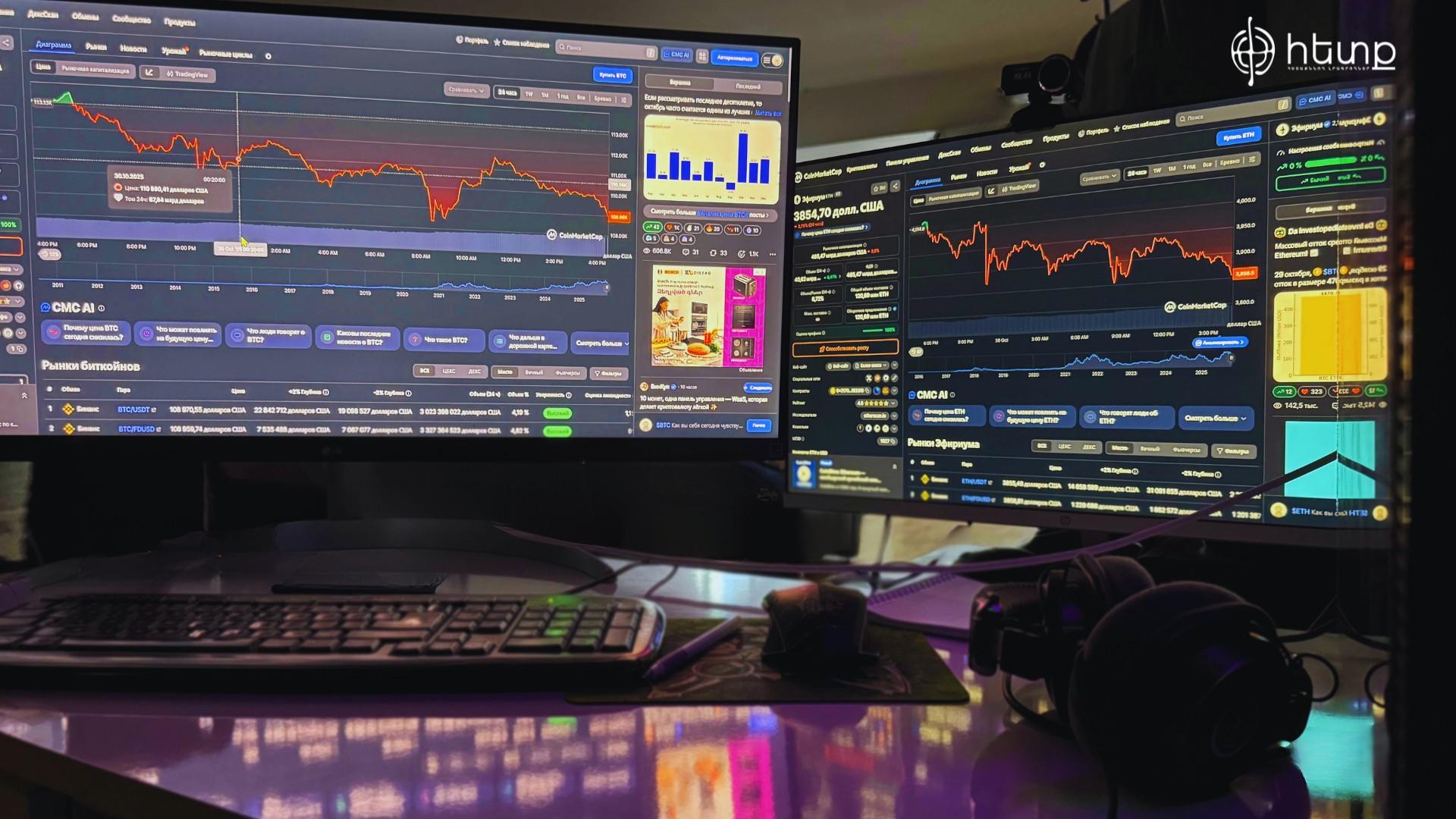
Armenian Government Officials Own $1.5 Million in Cryptocurrency
Seventy-two officials of the executive branch of Armenia’s government declared cryptocurrency holdings of US$ 1,456,400 million in 2024.
Their preferred crypto is Bitcoin - $744,300, followed by Fasttoken - $484,000, Ethereum - $130,000, Ton – $14,000, Solana - $5,100, and others - $79,000.
Officials who own cryptocurrency say that in Armenia this currency is becoming controllable at the legislative level, which further increases its attractiveness.

Cryptocurrency is a “virtual” money based on a technology called “blockchain.” The latter uses encryption methods that ensure the security of transactions. Cryptocurrency is not managed by banks or governments but is created by computer programs.
In 2024, Aram Jivanyan (Chairperson of the Military Industry Committee of the Ministry of High-Tech Industry), was the largest cryptocurrency holder - $711,000.
Gurgen Arsenyan (Armenia’s Ambassador to Russia) owned $250,050, and Davit Khachatryan (Deputy Minister of Labor and Social Affairs) owned $159,000.

Jivanyan told Hetq that he has been engaged in cryptography since 2010 and created the first startup in Armenia based on cryptography. He sold cryptographic algorithms to Samsung, and in 2015 his first company created a data encryption product in France. Then, he was the chief scientist and co-founder of a cryptocurrency company.
Cryptography is the science that studies the encryption and protection of information in such a way that only authorized individuals can read or modify it.

“Whatever crypto I have now is acquired with crypto I created. In other words, I have replaced the crypto I created with another crypto, specifically Bitcoin. I have seven Bitcoins, which I acquired with Firo, and I was the creator of Firo’s technology. I am not a fan of cryptocurrencies, but rather a cryptographer and scientist and have been a businessperson, creating products or algorithms based on cryptography since 2010,” Jivanyan told Hetq.
Responding to the issue that cryptocurrency is only just beginning to arouse interest in Armenia and that there are no proper control mechanisms for this currency in Armenia, Jivanyan said that such regulations have already been established this year.
“Of course, time is needed because the whole world still does not know how to relate to this phenomenon,” said Jivanyan.
On May 25, 2025, the Law On Cryptoassets was adopted in Armenia that regulates the relations related to the implementation of activities in the crypto-asset market of Armenia. The law defines the public offer and purchase and sale of crypto-assets, types of services with crypto-assets, as well as the procedures for their provision and implementation, the powers and responsibilities of the Central Bank in the field of regulation and supervision of the crypto-asset market, and liability for violation of the requirements of the law and legal acts adopted on its basis.
It should be noted that officials who have cryptocurrency have studied the sector and are not anxious, even in situations when financial markets are shaken.
Deputy Minister of Labor and Social Affairs Davit Khachatryan told Hetq that he is very interested in technological developments taking place in the world, especially over the last thirty years. He’s owned cryptocurrency since 2022.

“Given that I am an economist by profession, I have certain ideas about any future transformation, especially in terms of innovative technological assets. I think that cryptocurrency technology is quite interesting and is rapidly gaining application. Many countries have begun to consider blockchain technology as secure and apply it in various systems. I think that the demand for it will grow significantly in the coming years, which will lead to an increase in the price of assets,” Khachatryan said.
He said that cryptocurrencies have an issue limit, which makes them more predictable. For example, the declared size of Bitcoin is 21 million units, which does not change.
Khachatryan claims that 5-6% of Armenia's population already owns a cryptocurrency, which is approximately equal to the number of Google users in the world in 1998-1999.
Hetq asked Khachatryan if he was concerned about the shocks in the cryptocurrency market in recent months, since his holdings are quite large.
“These shocks occurred not only in crypto, but in financial markets in general. If you look, there were several interesting days and especially assets listed on the American stock exchange fluctuated. Of course, the volatility of crypto is higher. The last major fluctuation was associated with the US imposing high tariffs on Chinese goods, which caused concern in the financial world, including crypto. People noticed risks and decided to convert them into cash,” said Khachatryan.
While he was also worried about these fluctuations, he realized the risk, and he wasn’t surprised by them.
“What I'm saying is that any investor should realize his risks and understand whether his risk appetite meets these conditions or not. There is concern, but there are solutions to it You diversify, turn it into cash. But in the long term, crypto is an interesting asset for me, that is, to increase, to hold, and I am not afraid of such fluctuations,” Khachatryan told Hetq.
Ambassador Gurgen Arsenyan only owns Fasttoken cryptocurrency. Hetq was unable to get further clarification from him.

Of note is that in May 2025, amendments were made to the Law on Public Service, making crypto-assets subject to financial declaration.
 Videos
Videos Photos
Photos
Comments (1)
Write a comment